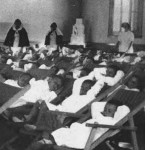July 2017

Amílcar Cabral is one of the most renowned figures in contemporary African history. He was assassinated in 1973.
This article contributes to the debate on how historians and social scientists perceive and understand relations between ideology and science, which are often seen as realms belonging to rival kingdoms.
Ideology, science, and people in Amílcar Cabral (Hist. cienc. saude-Manguinhos vol.24 no.2 Rio de Janeiro Apr./Jun. 2017, by Universidade Nova de Lisboa examines how scholars have portrayed Almícar Cabral, the Bissau-Guinean agronomist and one of Africa’s foremost anti-colonial leaders.
The article also explores the relations between science and ideology in the writings by and about Amílcar Cabral and his references to “people”, which often hold a central place in Cabralian studies.
See the current issue of HCS-Manguinhos (vol.24 no.2 Apr./Jun. 2017).






